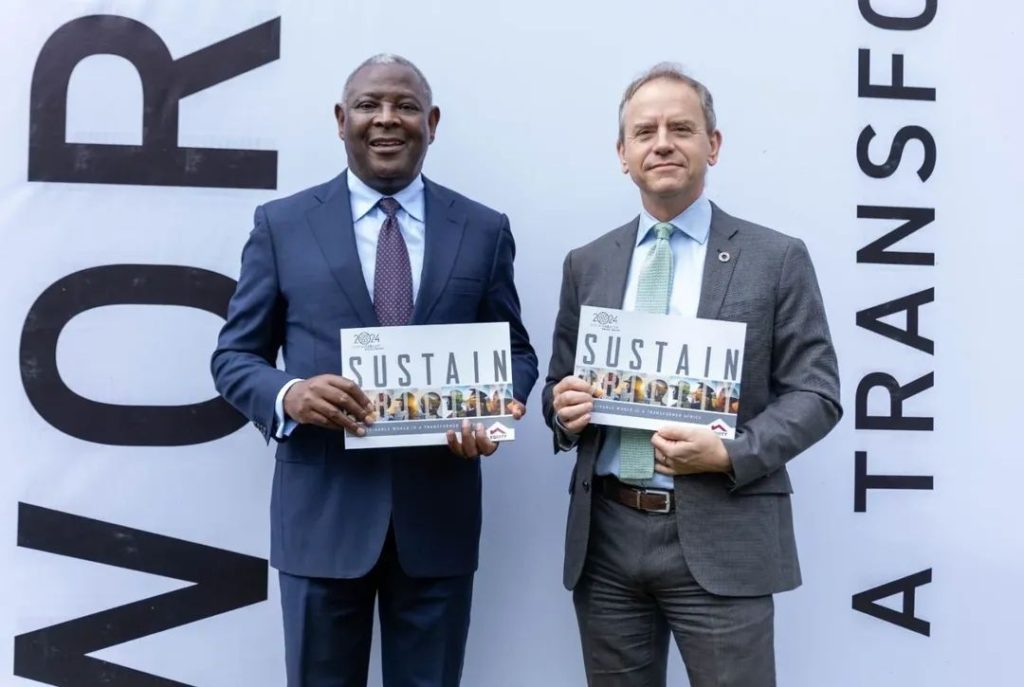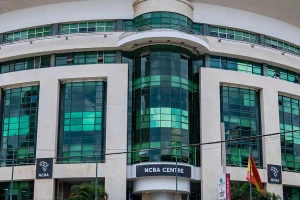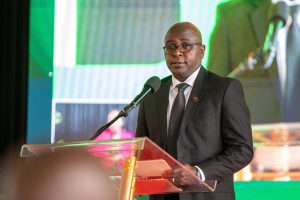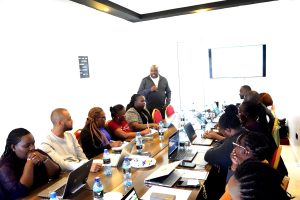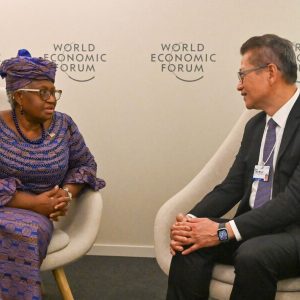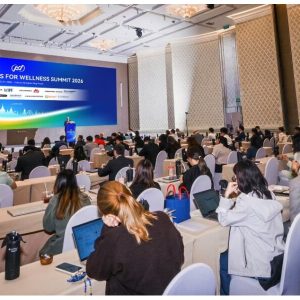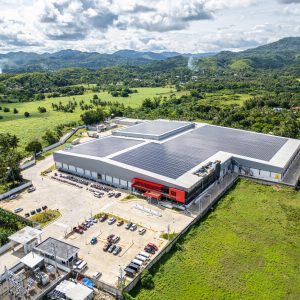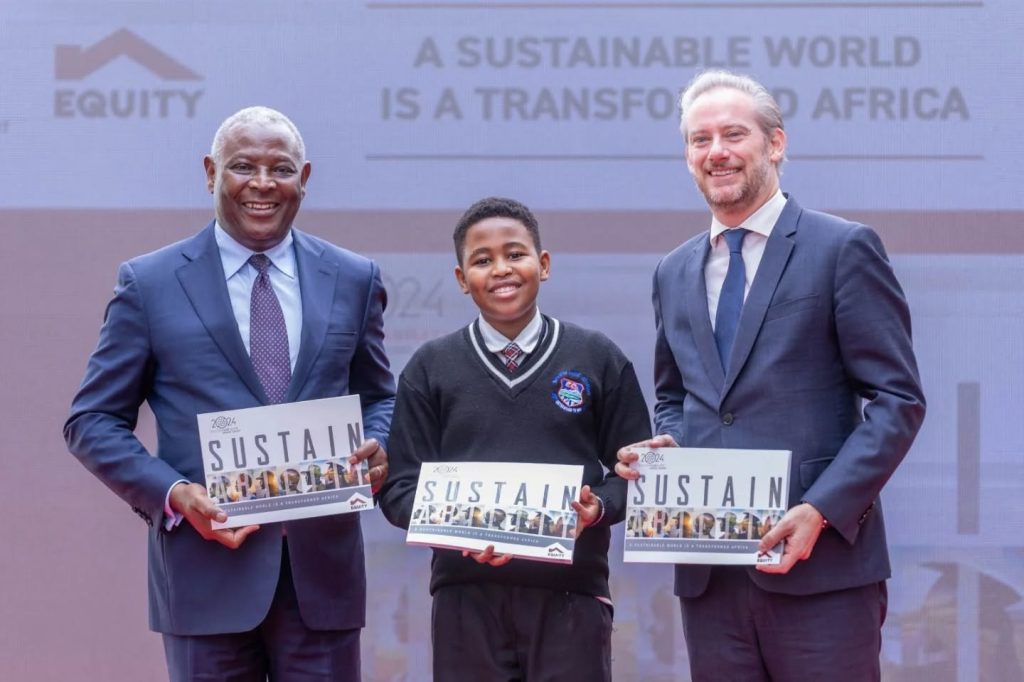
Equity Group Unveils 2024 Sustainability Report Showcasing Measurable Progress and Impact:
- Equity Group’s 2024 Sustainability Report, `A Sustainable World is a Transformed Africa’ showcases the continued integration of its tri-engine model, which focuses on Social, Economic, and Environmental pillars to drive sustainability. This approach has enabled the Group to scale its efforts in climate finance, socio-economic resilience, and nature-related risk and opportunities management, fostering a holistic and impactful business strategy. Link to the report: https://equitygroupholdings.com/wp-content/uploads/2025/10/2024-Equity-Group-Holdings-PLC-Sustainability-Report.pdf
- Under the Social Protection pillar, Equity Group expanded its initiatives to support refugees and marginalized populations. Through cash transfers, affordable credit, and financial literacy programs, the Group facilitated reach to over 447,355 vulnerable households, disbursing Kshs. 25.8 billion (USD 199.7 million) cash transfers and Kshs. 4 billion (USD 31 million) in affordable credit to foster resilience and inclusion.
- As a pioneer in adopting the Task Force on Nature-related Financial Disclosures (TNFD), Equity Group deepened its commitment to preserving Africa’s natural capital. The Group continued its early work on nature risk assessments, ensuring biodiversity and ecosystem considerations are embedded in decision-making processes.
- Equity Bank Kenya has broken new ground in impact transparency with the launch of its inaugural Sustainable Development Impact Disclosure (SDID) Report, a data-driven framework in partnership with J.P. Morgan, that aligns finance with the Sustainable Development Goals and quantifies progress through measurable outcomes. Link to the report: https://equitygroupholdings.com/ke/2024-sdid-equity-bank-kenya-ltd
Equity Group unveiled its fourth annual sustainability report for the year 2024, themed “A Sustainable World is a Transformed Africa.” The theme points to the significant role that global sustainability practices play in driving Africa’s transformation, a mission that Equity Group has committed to pioneering.
It highlights Equity’s proactive leadership in addressing Africa’s most pressing challenges, such as climate change, financial inclusion, and social protection, while scaling innovative solutions through its Tri-Engine Model.
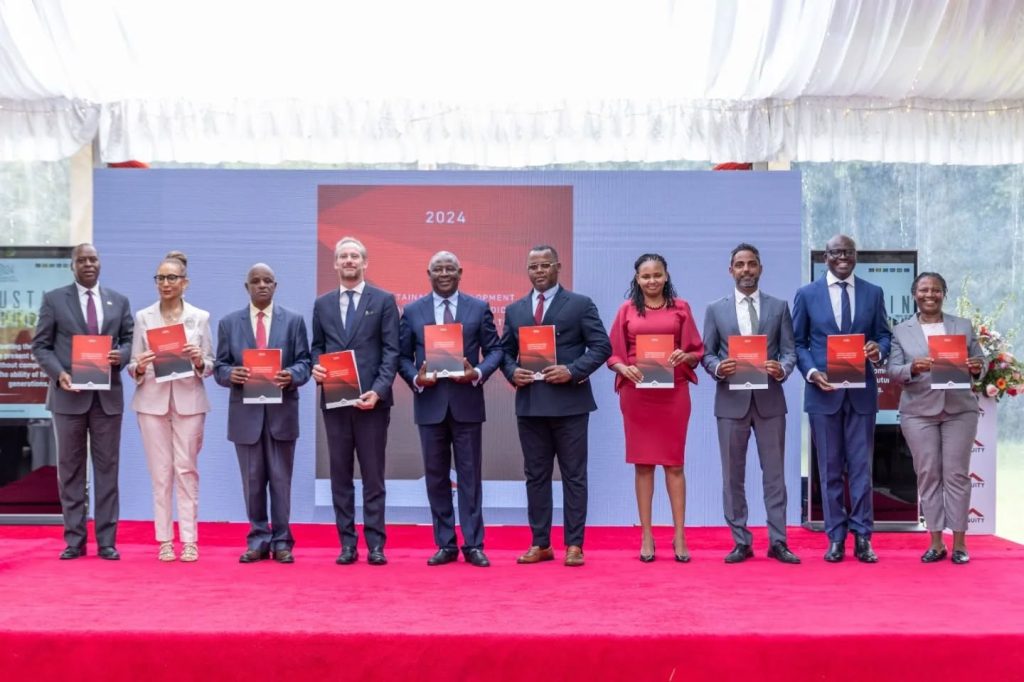 A key highlight of the report is Equity Group’s expanded and impactful efforts through its social impact arm, the Equity Group Foundation under its Social Protection pillar, particularly in addressing the needs of refugees, host communities, and vulnerable populations.
A key highlight of the report is Equity Group’s expanded and impactful efforts through its social impact arm, the Equity Group Foundation under its Social Protection pillar, particularly in addressing the needs of refugees, host communities, and vulnerable populations.
Through strategic partnerships, financial assistance, capacity-building, de-risking investments and environmental conservation initiatives, Equity has empowered marginalized populations to achieve resilience, self-reliance, economic stability, and environmental integrity reinforcing its role as a catalyst for inclusive growth, social and environmental transformation across Africa.
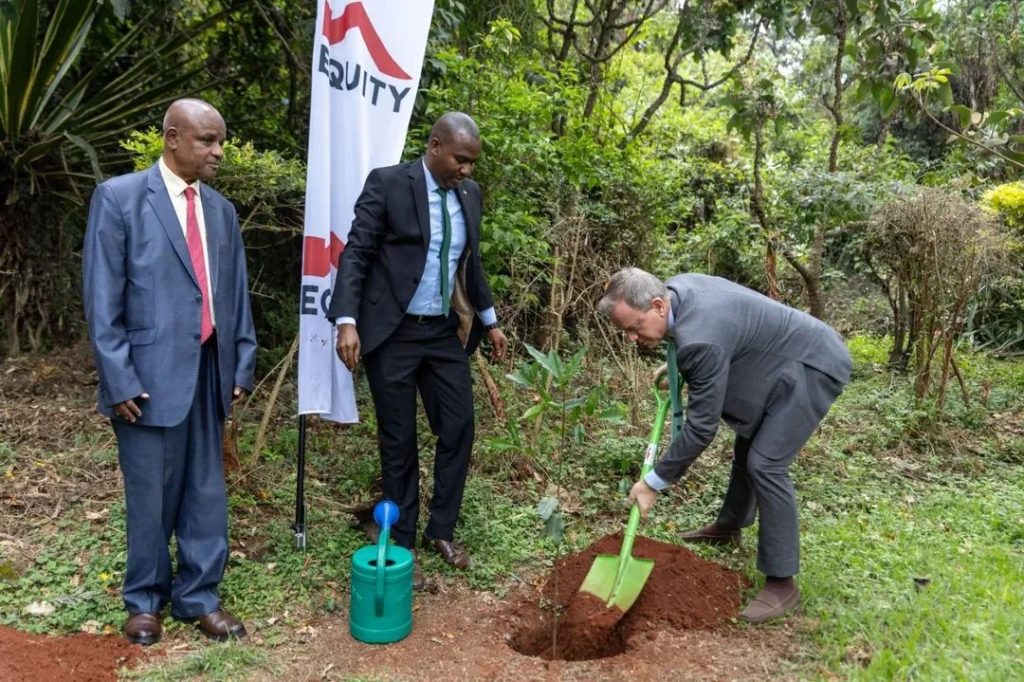 Commenting on the central role sustainability plays in the Group’s strategy during the unveiling of the report, Equity Group Managing Director and CEO, Dr. James Mwangi, stated that, “Sustainability is not just a goal for Equity Group; it is the guiding principle that defines how we do business.
Commenting on the central role sustainability plays in the Group’s strategy during the unveiling of the report, Equity Group Managing Director and CEO, Dr. James Mwangi, stated that, “Sustainability is not just a goal for Equity Group; it is the guiding principle that defines how we do business.
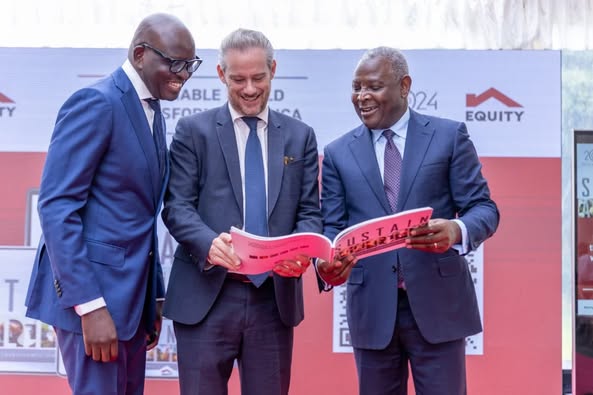 It shapes our investments, our partnerships, and our purpose, to ensure that growth and prosperity are inclusive and enduring. By embedding sustainability into every aspect of our operations, we are not only future-proofing our business but also empowering people and protecting the planet.
It shapes our investments, our partnerships, and our purpose, to ensure that growth and prosperity are inclusive and enduring. By embedding sustainability into every aspect of our operations, we are not only future-proofing our business but also empowering people and protecting the planet.
Our Tri-Engine Model allows us to translate this purpose into measurable impact, enabling refugees to rebuild their lives, smallholder farmers to increase productivity, and communities to access clean energy and financial opportunities. We are demonstrating that a sustainable world is indeed a transformed Africa.”
In his statement, Equity Group Chairman, Prof. Isaac Macharia, noted that sustainability has long been woven into the Group’s governance and purpose, guiding how the institution creates long-term value for its stakeholders. “Sustainability is part of who we are.
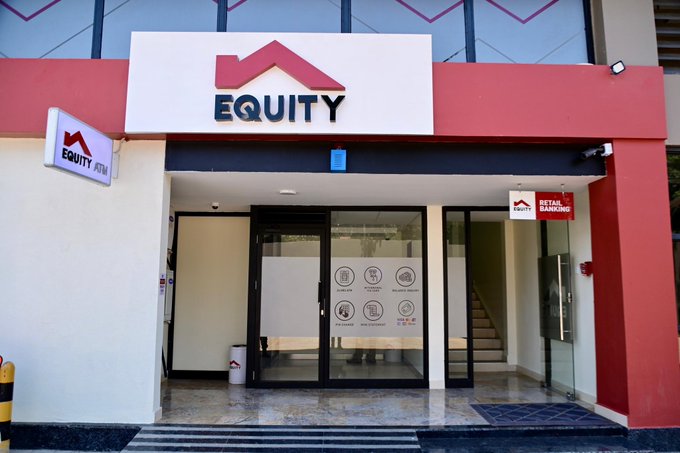
It’s not a new frontier for Equity Group but the foundation of our purpose. We have always believed that true prosperity is shared prosperity.
In a world facing complex challenges, we are strengthening our governance, investing in people and systems, and ensuring that sustainability remains at the heart of our business model. Our tri-engine approach positions us to deliver long-term value for our stakeholders while driving Africa’s transformation through resilience, innovation, and shared prosperity,” he said.
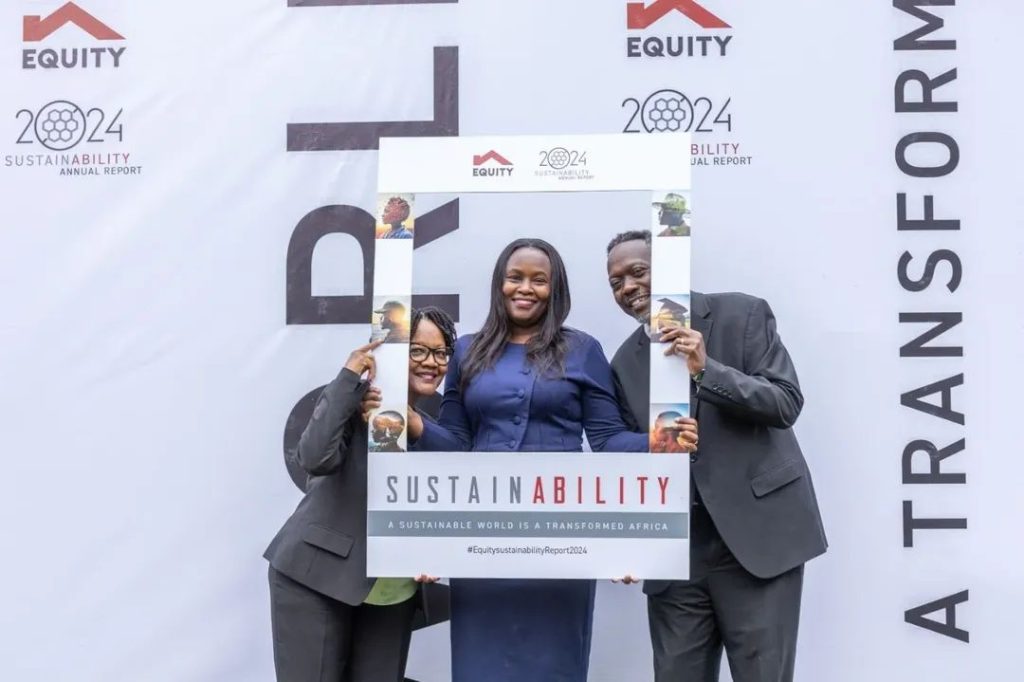 Speaking at the event, H.E. Arnaud Suquet, the French Ambassador to Kenya and Somalia, commended Equity Group for its unwavering commitment to advancing sustainability, noting that Africa must be an actor of change rather than a passive victim of decisions made elsewhere.
Speaking at the event, H.E. Arnaud Suquet, the French Ambassador to Kenya and Somalia, commended Equity Group for its unwavering commitment to advancing sustainability, noting that Africa must be an actor of change rather than a passive victim of decisions made elsewhere.
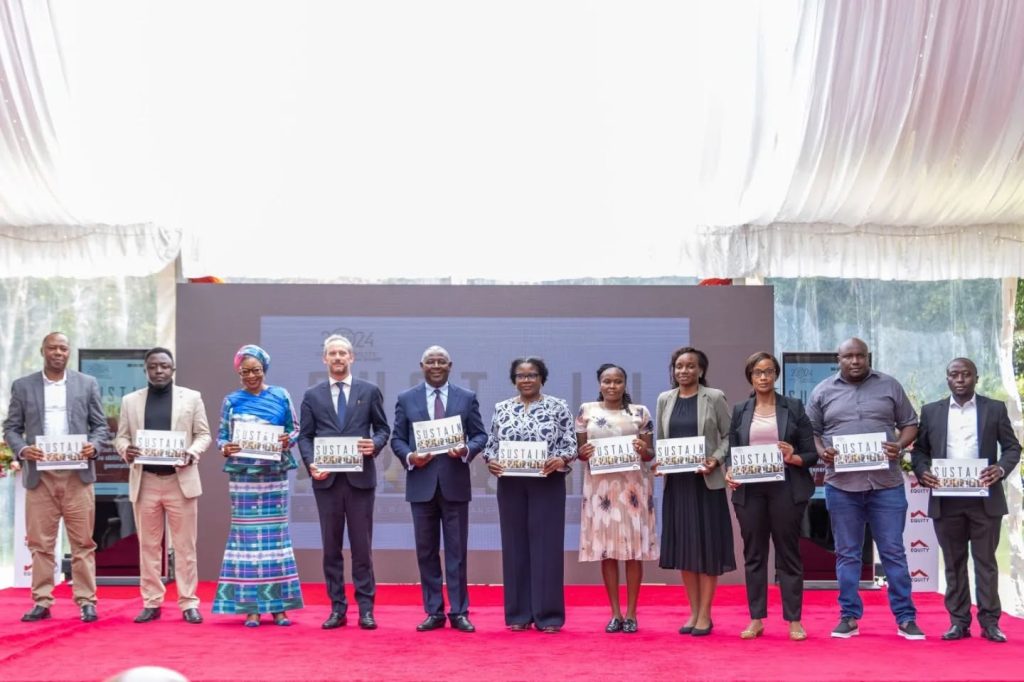 “Equity Group’s continued leadership in embedding sustainability into its business model demonstrates that Africa has both the vision and capacity to drive its own transformation.
“Equity Group’s continued leadership in embedding sustainability into its business model demonstrates that Africa has both the vision and capacity to drive its own transformation.
France is proud to be a long-term partner in this journey, working alongside Equity to strengthen SMEs, promote climate-resilient agriculture, and foster inclusive growth. Together, we are proving that sustainable development is not only possible but essential for a prosperous and resilient Africa,” he said.
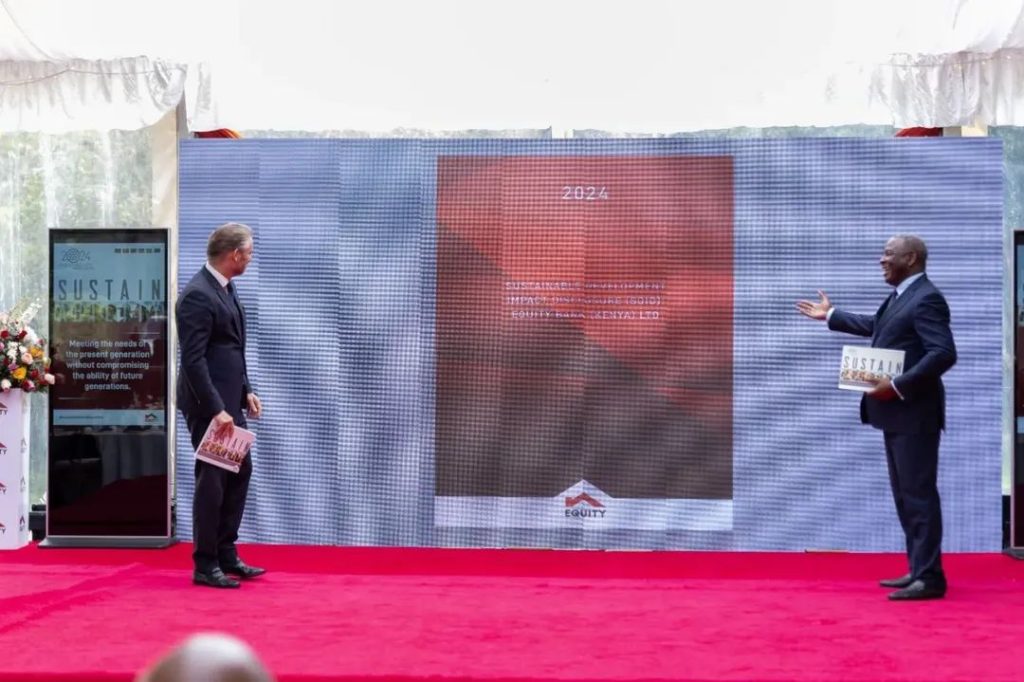 Dr. Stephen Jackson, UN Resident Coordinator in Kenya, congratulated Equity Group for setting a strong example of responsible business leadership.
Dr. Stephen Jackson, UN Resident Coordinator in Kenya, congratulated Equity Group for setting a strong example of responsible business leadership.
“I am delighted to join Equity in celebrating what it truly means to define business responsibility in the arena of sustainability.
This report stands as a blueprint for how the private sector, particularly financial institutions, can serve both humanity and the planet.
At the UN in Kenya, we are proud to count Equity among our closest and most trusted partners in the private sector: a partner that not only understands and values the Sustainable Development Goals but also recognizes that they are not just moral imperatives, they are sound business opportunities and part of a resilient, forward-looking strategy for Africa’s future,” he remarked.
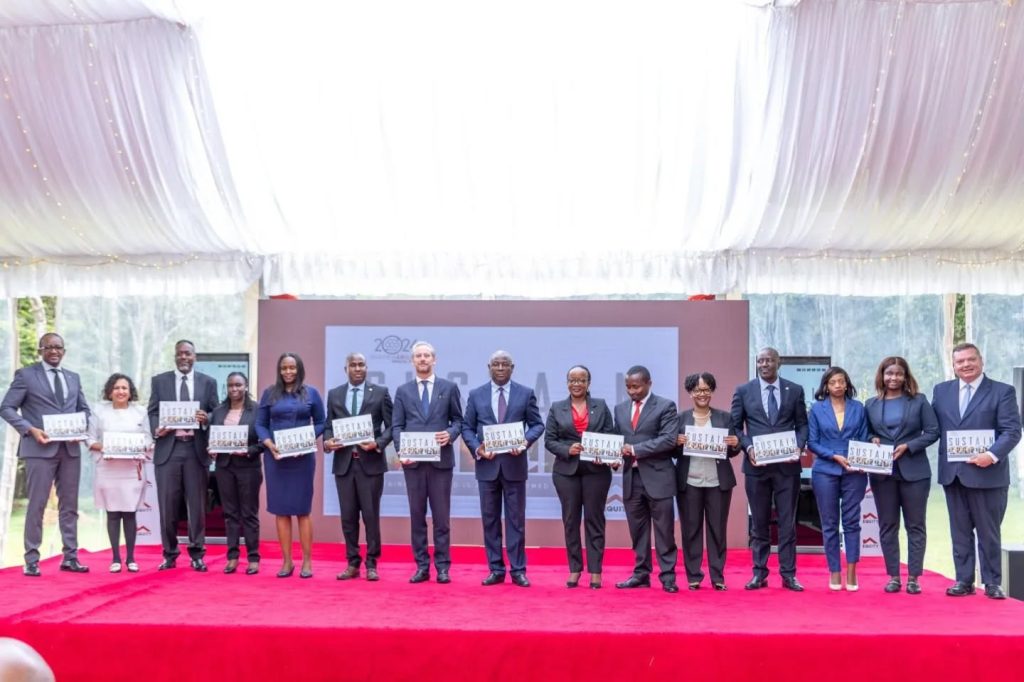
The report recognizes Equity’s global recognition for its sustainability leadership, including its ranking as the Second Strongest Banking Brand in the World and the Most Valuable Brand in East and Central Africa by Brand Finance.
Equity also maintained its momentum in advancing climate-related transactions, building on the previous year’s recognition by the International Finance Corporation (IFC) for its first ranked in the world contributions to climate finance, both in climate mitigation and adaptation practices.
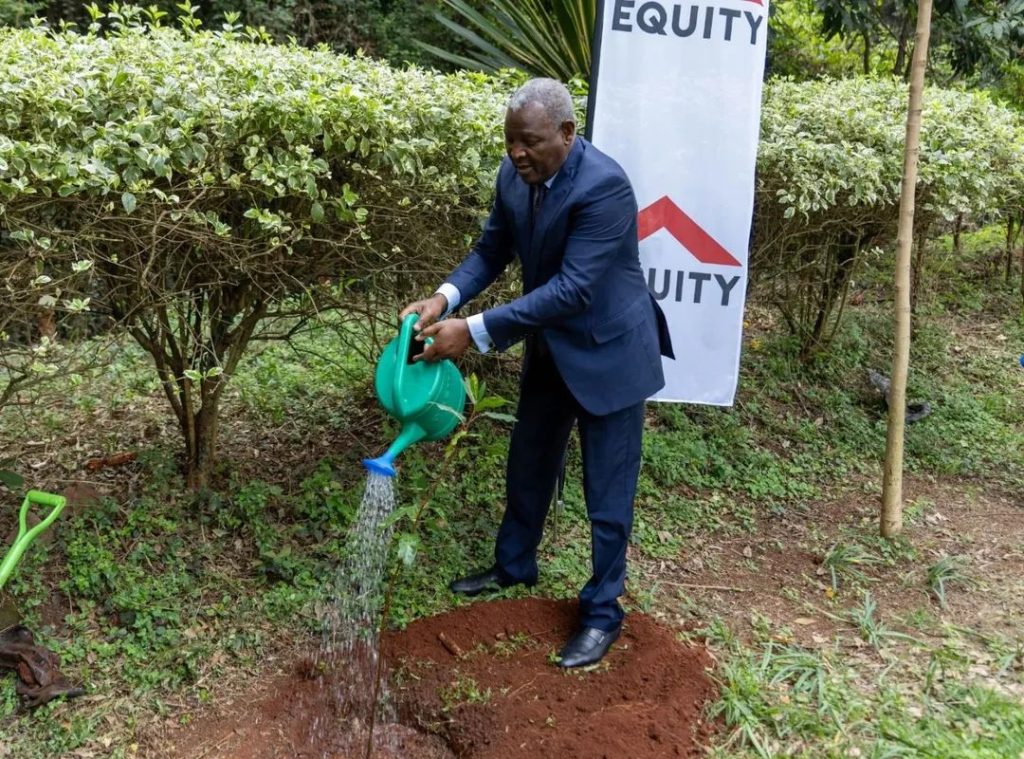 Additionally, Equity earned accolades such as Euromoney’s Best Bank for Corporate Social Responsibility in Africa, further solidifying its reputation as a purpose-driven institution.
Additionally, Equity earned accolades such as Euromoney’s Best Bank for Corporate Social Responsibility in Africa, further solidifying its reputation as a purpose-driven institution.
Equity Group’s sustainability approach in 2024 is built on three interconnected pillars that drive its commitment to creating a sustainable and inclusive future.
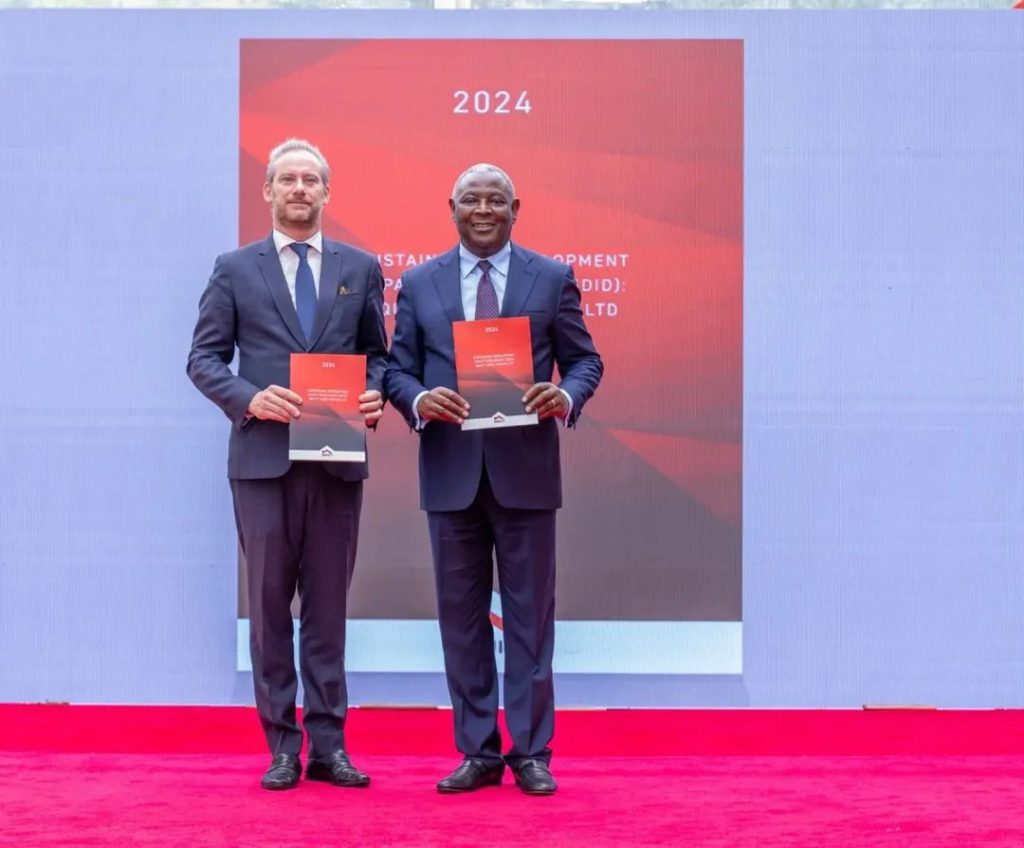 First, the Group prioritizes environmentally friendly operations by focusing on energy and resource efficiency, waste reduction, and water conservation across its offices and branches.
First, the Group prioritizes environmentally friendly operations by focusing on energy and resource efficiency, waste reduction, and water conservation across its offices and branches.
These efforts reflect Equity’s dedication to minimizing its environmental footprint while promoting responsible business practices. Second, Equity has deepened its commitment to Environmental, Social, and Governance (ESG) excellence, with a special focus on nature preservation.
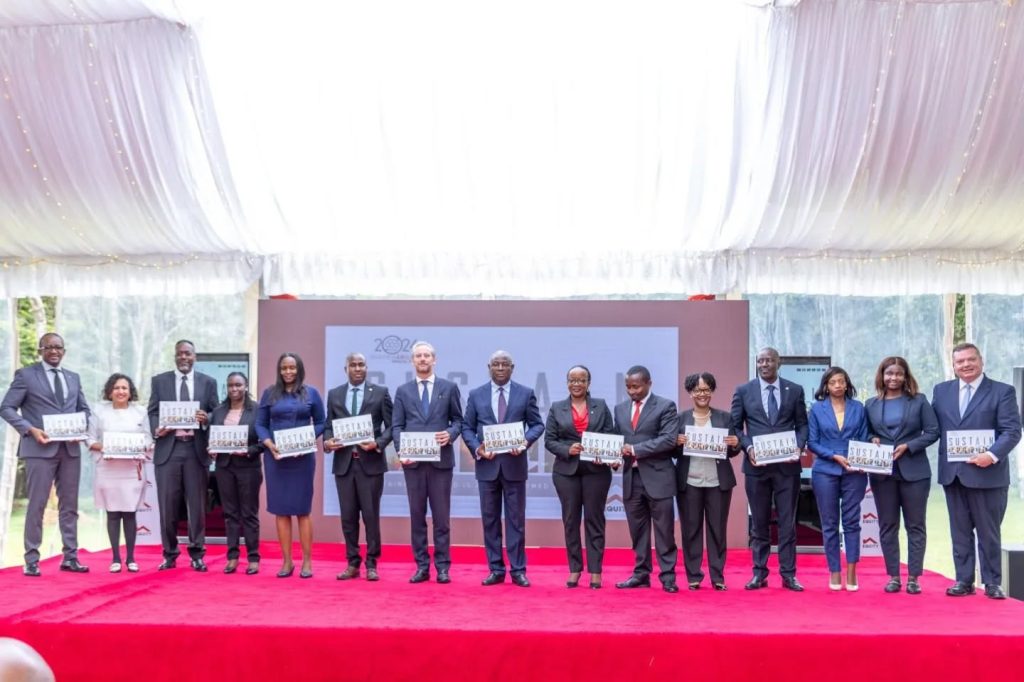 This includes offering sustainable finance and investment products that align with global best practices.
This includes offering sustainable finance and investment products that align with global best practices.
Similarly, the Group remains steadfast in its dedication to financial inclusion, ethical operations, and fostering a responsible and supportive workplace for its employees. Third, Equity recognizes that sustainability cannot be achieved in isolation.
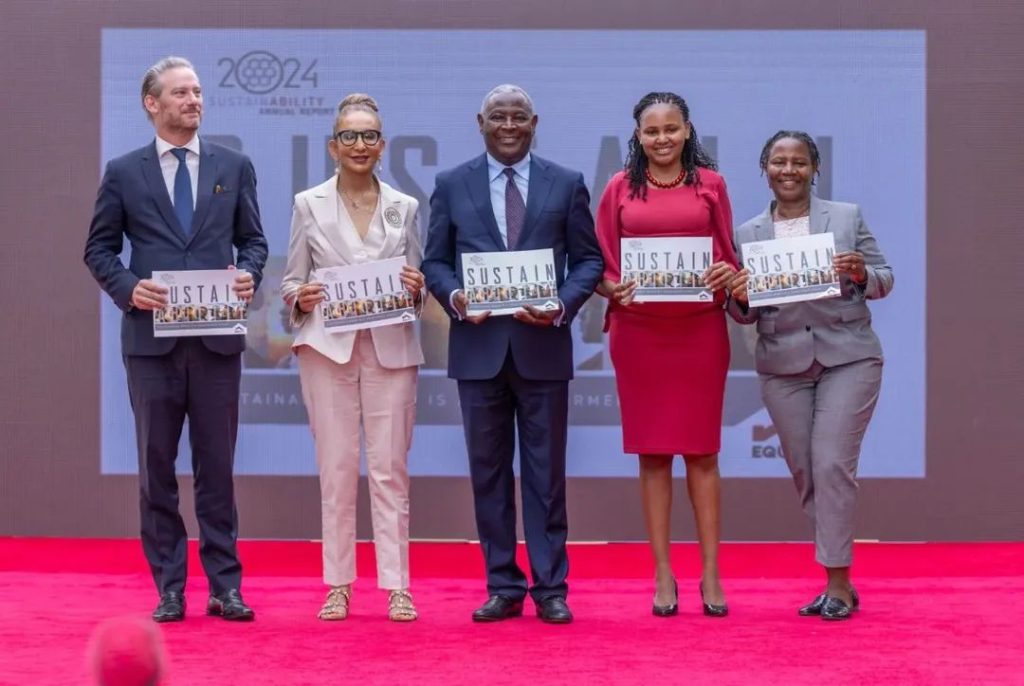 The Group has strengthened its collaborative efforts under the Africa Recovery and Resilience Plan (ARRP), working closely with diverse stakeholders to drive long-term socio-economic transformation across the continent.
The Group has strengthened its collaborative efforts under the Africa Recovery and Resilience Plan (ARRP), working closely with diverse stakeholders to drive long-term socio-economic transformation across the continent.
Through these partnerships, Equity is catalysing collective action to address Africa’s most pressing challenges and unlock its vast potential for growth and resilience.
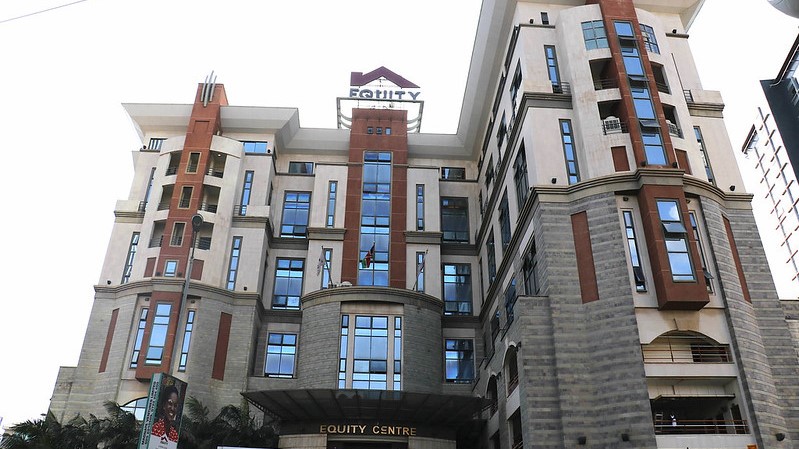
The 2024 Sustainability Report unpacks how Equity is delivering measurable impact within its business operations across the seven markets it operates in: Kenya, Uganda, Tanzania, South Sudan, Rwanda, DRC, and Ethiopia, where it maintains a representative office.
It further highlights Equity’s expanded efforts to drive environmental and nature stewardship, socio-economic transformation, and financial inclusion, showcasing its commitment to creating shared prosperity and resilience across the continent.
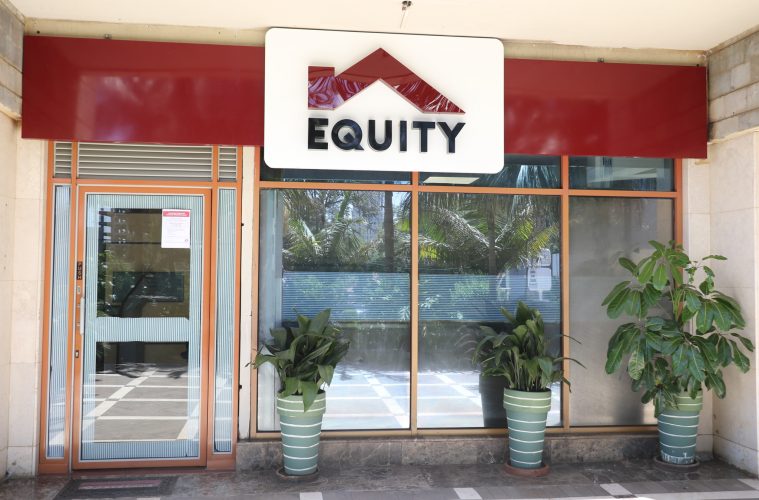 Alongside the launch of the 2024 Sustainability Report, Equity Bank Kenya Limited also unveiled its first Sustainable Development Impact Disclosure (SDID) Report, marking a significant step in advancing transparency and accountability in sustainable finance.
Alongside the launch of the 2024 Sustainability Report, Equity Bank Kenya Limited also unveiled its first Sustainable Development Impact Disclosure (SDID) Report, marking a significant step in advancing transparency and accountability in sustainable finance.
The SDID Report, in partnership with global financial institution J.P. Morgan, provides a detailed view of the Bank’s measurable contributions to the Sustainable Development Goals (SDGs), showcasing how capital is being deployed to deliver tangible socio-economic and environmental outcomes.

Commenting on the milestone, Dr. James Mwangi, Equity Group Managing Director and CEO, said:
“This milestone reinforces our leadership in transparent, impact-based reporting, anchoring finance in accountability, purpose, and strengthened governance.
Through the SDID Report, we are going beyond traditional financial disclosure to demonstrate how every shilling invested creates value for people, communities, and the planet.
This is the future of finance, one that measures success not only in profit, but in progress.”
Waste
Equity aims to minimise overall waste generated and eliminate waste sent to landfills from all subsidiaries and subsequently branches across the region.
In 2024, the Group tracked waste generated in Kenya identifying various waste streams including paper, metals, organic matter, plastics, medical waste, and e-waste. A total of 362 tons of waste was collected, which was lower than 441 tons that were generated in the year 2023, which represents an 18% reduction.
Paper waste accounted for 46% of the total waste generated, totaling 166.5 tons. In Kenya generated wastepaper continues to be recycled through support of a circularity approach with our suppliers.
Some of the initiatives that were implemented to reduce waste generated include engaging of e-waste recyclers, recycling of paper, reduction in printing through digitisation and staff education on waste reduction during mandatory annual sustainability training.
ESG Risk Management
In 2024, Equity embedded Environmental, Social, and Governance (ESG), climate, and nature risk across the credit lifecycle by operationalizing Environmental and Social Risk in lending, strengthening disclosure controls, and upgrading data systems to support useful decision reporting.
Equity operationalized solar and water solutions lending; system flagging enabled for monitoring/reporting green transactions, rolled out the GHG digital tool with dashboards; and updated the Environmental and Social management system (ESMS) to include nature-risk and ESG rating embedded in credit appraisal and portfolio oversight.
Our People
Equity Group places strong emphasis on the social pillar of its sustainability strategy, recognising that its people are its most valuable asset. In 2024, the Group strengthened its commitment to fostering a purpose-driven and inclusive workplace.
This included significant investments in training, diversity, and employee wellbeing. The Group invested Kshs 846.6 million (USD 6.6 million) in training, equipping 12,081 employees with skills in diverse areas including sustainability, ESG governance, and leadership development.
Employee wellness programs were expanded to include physical fitness sessions, mental health support, and financial literacy training, reflecting the Group’s holistic approach to employee wellbeing.
Workforce diversity remained a priority, with women comprising 44% of employees and holding 35% of senior leadership roles.
Education and Leadership Development
The Equity Group Foundation remains deeply committed to empowering communities and shaping future leaders by expanding access to quality education.
By 2024, the Elimu Scholarship Program had supported 38,000 beneficiaries, achieving an impressive 95% KCSE completion rate.
The Equity Leaders Program (ELP) continued to provide life-changing opportunities, with 130 scholars securing admission to international universities, including 13 at Ivy League institutions.
Additionally, 181 university graduates were placed in job opportunities within Equity, its ecosystem, or beyond, furthering the circularity of our social impact.
To further empower communities, the Foundation trained 2,150 teachers to lead mentorship initiatives and engaged 3,000 community members in transformative training sessions.
Health
The Equity Group Foundation continues to transform healthcare access through its flagship Health program. In 2024, Equity Afya had expanded its network to 127 outpatient medical centres in Kenya and established 5 clinics in the DRC.
This expansion has enabled the program to serve cumulative 3.3 million patients across 1.2 million networks, reflecting our commitment to delivering affordable, high-quality, and standardized health services, especially in underserved and rural communities.
Food and Agriculture
The Equity Group Foundation continues to lead transformative efforts in the agriculture sector by empowering small and medium-sized farmers to enhance their production capabilities, business skills, and access to technology and financial services, while addressing climate smart farming needs.
Under its Food and Agriculture pillar, the Foundation trained 245,675 farmers who received training across various value chains, with 22,458 specializing in cereals, a vital crop for food security. 7,426 Micro-Small and Medium Agriculture Enterprises (MSMAEs) were trained to boost productivity and promote sustainable farming practices.
The Foundation also geo-mapped 178,138 farms, enabling data-driven agricultural planning and decision-making.
To further support farmers, 183,463 individuals were linked to agricultural markets and post-harvest loss solutions, while 7 million tips on financial literacy and Good Agricultural Practices (GAP) were shared with 175,207 farmers, equipping them with the knowledge to improve efficiency and profitability.
Reinforcing its commitment to sustainable farming, the Foundation disbursed Kshs 502 million (USD 3.9 million) to 20 irrigation schemes enhancing water access and building resilience in agricultural communities.
Enterprise Development and Financial Inclusion
The Equity Group Foundation remains committed to driving economic growth and job creation by empowering Micro, Small, and Medium Enterprises (MSMEs) with the skills, knowledge, and resources needed to succeed.
In 2024, the Foundation trained 116,812 MSMEs, equipping them with enhanced entrepreneurial skills to improve their business operations and sustainability. Additionally, 95,700 MSMEs benefited from mentorship programs, fostering growth and resilience in their enterprises.
The Foundation also prioritized financial inclusion, with 26,903 individuals gaining access to essential financial services and resources.
Energy, Climate Change, and Environment
The Equity Group Foundation continues to champion environmental sustainability, nature preservation and climate resilience through its Energy, Environment, and Climate Change pillar.
In 2024, the Foundation distributed 44,732 clean energy products, contributing to a greener and more sustainable future. These efforts represented a total value of USD 28.5 million, showcasing the Foundation’s commitment to driving impactful change.
Through these initiatives, the Foundation reached over 466,975 households, enabling access to renewable energy solutions that improve livelihoods, reduce reliance on traditional fuels, and mitigate environmental degradation.
To restore nature and biodiversity, and mitigate climate change, the Foundation continued with its tree-growing initiative to a total of 35 million trees.
Social Protection: Supporting Vulnerable Communities
The Equity Group Foundation continued to uplift vulnerable households, refugees and host communities through its Social Protection initiatives in 2024.
The Inua Jamii program was scaled up to reach 447,355 individuals, transferring a total of Kshs 25.8 billion (USD 199.7 million) in cash to needy households.
Additionally, the Foundation disbursed Kshs 4 billion (USD 31 million) in affordable credit to support vulnerable families, ensuring access to essential financial resources and fostering resilience in underserved communities.
Innovation and Technology: Driving Digital Transformation
In 2024, Equity Group Foundation advanced its commitment to innovation and technology by upskilling 300 individuals, including staff beneficiaries of the Education pillar, through a six-month training program in data engineering, generative AI, and blockchain.
This initiative brought the total number of trained individuals to 415, equipping them with cutting-edge skills for the digital economy. Furthermore, the Foundation spearheaded the development of 40 real working business prototypes, addressing critical infrastructure gaps in banking operations and driving technological transformation across the Group.
The comprehensive report covers all aspects of Equity Group, including Equity Group Holdings Plc and its prominent banking subsidiaries operating in Kenya, the Democratic Republic of the Congo (DRC), Uganda, Rwanda, South Sudan, and Tanzania.
It also incorporates the Representative Office in Ethiopia, the Equity Group Foundation (EGF), and other subsidiaries such as Equity Investment Bank, Equity Bancassurance Intermediary Limited, Finserve Africa Limited, Finserve Africa Trustees Limited, Equity Life Assurance (Kenya) Limited, Equity Afya, and Equity Group Insurance Holdings Limited.

